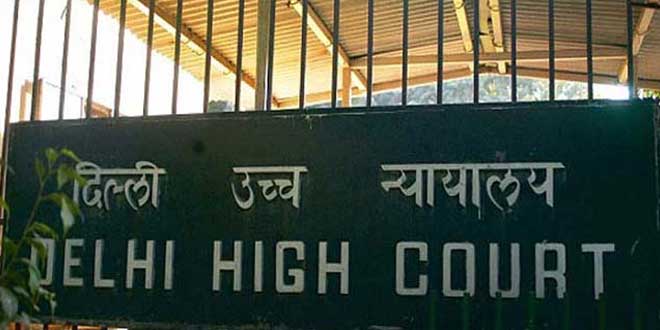New Delhi: The Delhi High Court today told the DDA that when it makes a residential colony, it has to ensure public toilets and drinking water facilities are also available for non-residents of the area like guards, street cleaners and on-duty police personnel. A bench of Acting Chief Justice Gita Mittal and Justice C Hari Shankar asked the Delhi Development Authority (DDA) as to where would such persons go during duty hours if they wanted water or had to use toilets.
“What about women police officers who are on traffic duty? Where will they go? You are the largest planner of Delhi, should you not plan for this,” the court asked DDA and directed it to take a considered view of the problem. The bench directed DDA to indicate its stand before the next date of hearing on October 23. The court was hearing a PIL filed by a law student highlighting the plight of guards posted in certain residential localities in Rohini area of North West Delhi.
The petitioner, Subhash Vijayran, has said in his plea that guards in Pockets 1, 3 and 4 of Sector 34 of Rohini are working in poor conditions without access to any water or toilet facilities. The guard rooms do not have any electricity connection to install fans to beat the heat and if they take power from nearby light poles, the same are disconnected by DDA officials, the plea said. The petitioner has also claimed that when he called up the DDA officials of the area regarding the matter, they did not take any step to provide basic facilities to the guards. Taking note of these issues, the bench directed the DDA to ensure that the needful is done.
NDTV – Dettol Banega Swachh India campaign lends support to the Government of India’s Swachh Bharat Mission (SBM). Helmed by Campaign Ambassador Amitabh Bachchan, the campaign aims to spread awareness about hygiene and sanitation, the importance of building toilets and making India open defecation free (ODF) by October 2019, a target set by Prime Minister Narendra Modi, when he launched Swachh Bharat Abhiyan in 2014. Over the years, the campaign has widened its scope to cover issues like air pollution, waste management, plastic ban, manual scavenging and menstrual hygiene. The campaign has also focused extensively on marine pollution, clean Ganga Project and rejuvenation of Yamuna, two of India’s major river bodies.






























